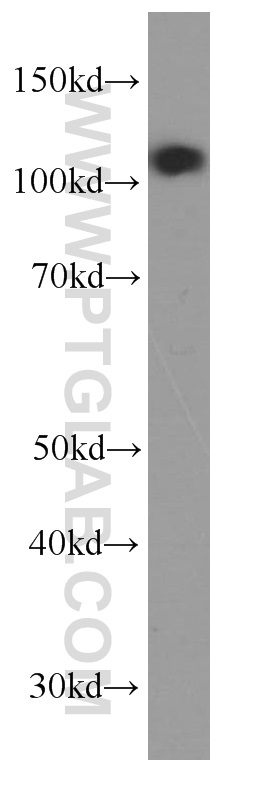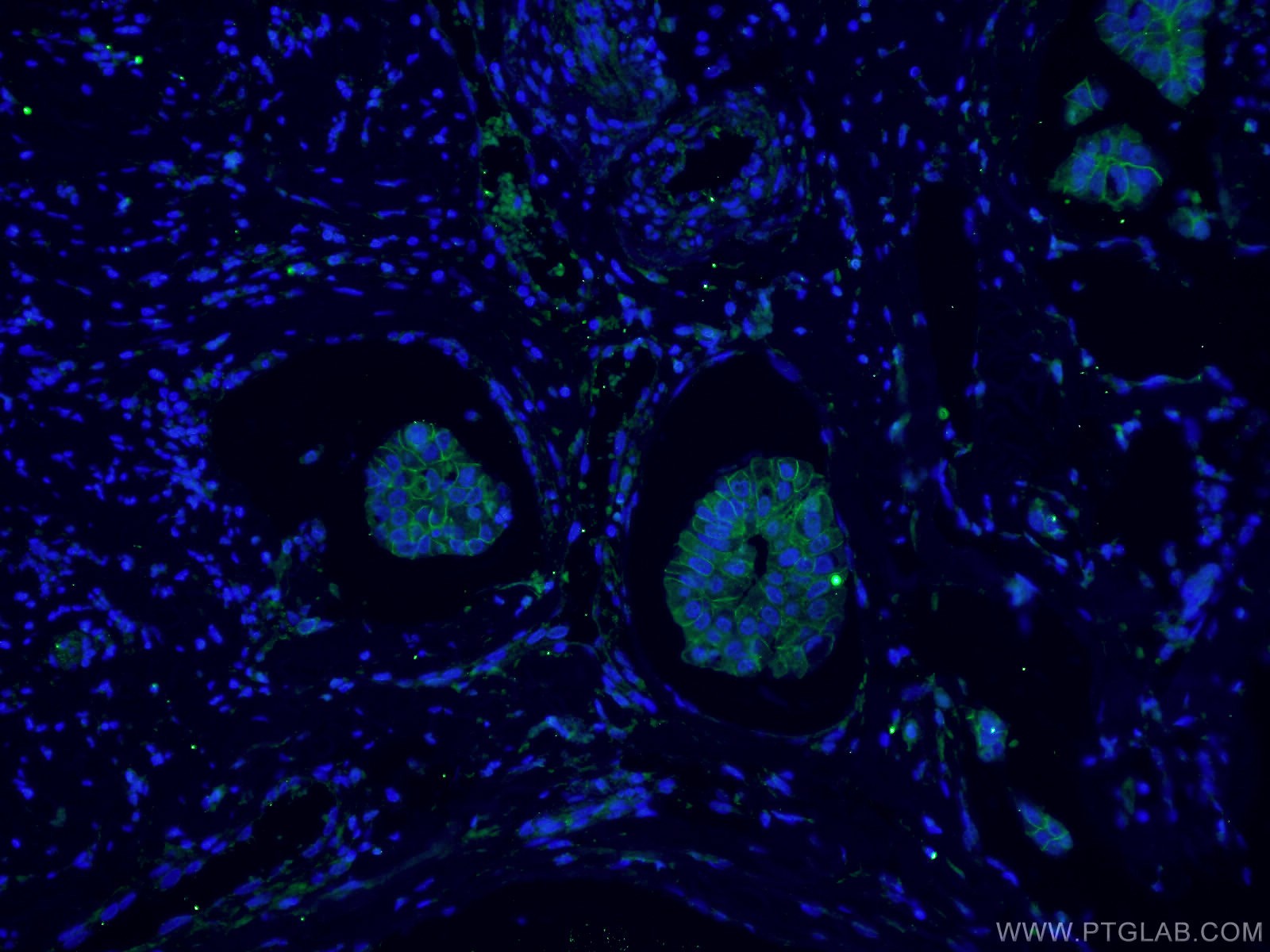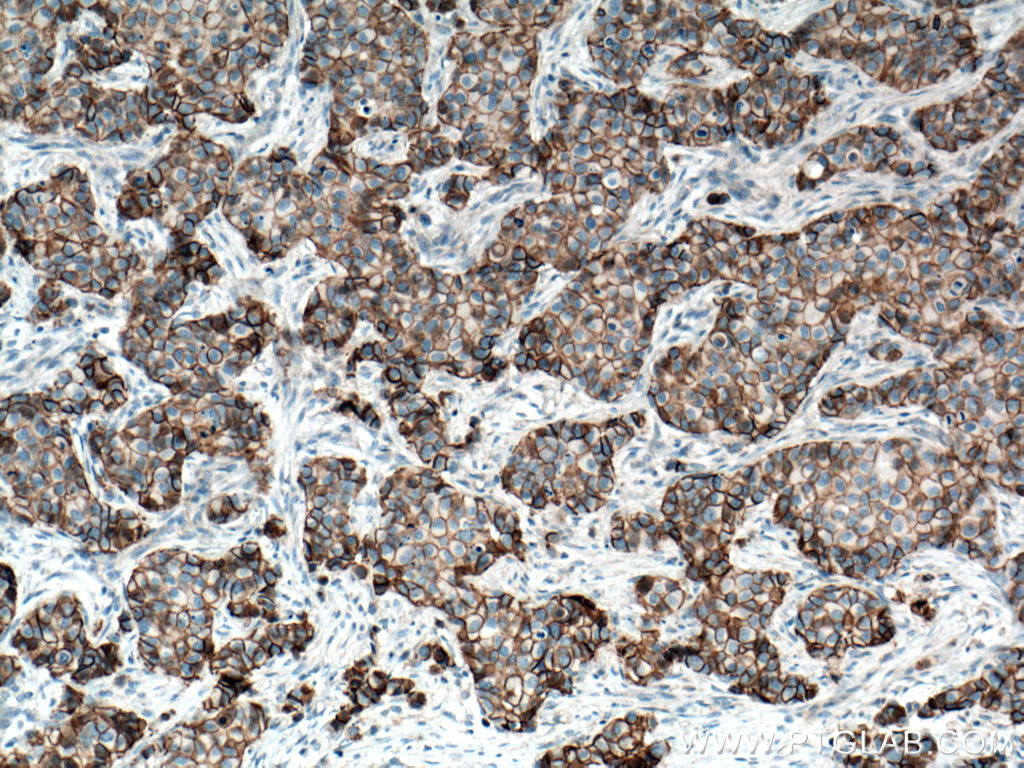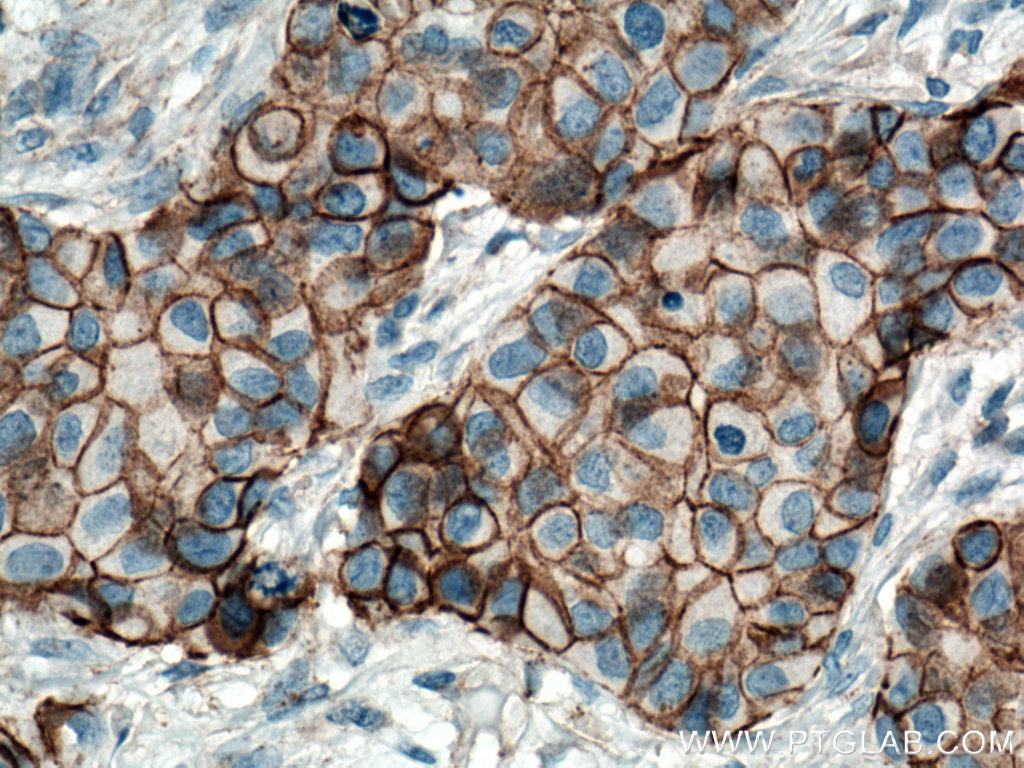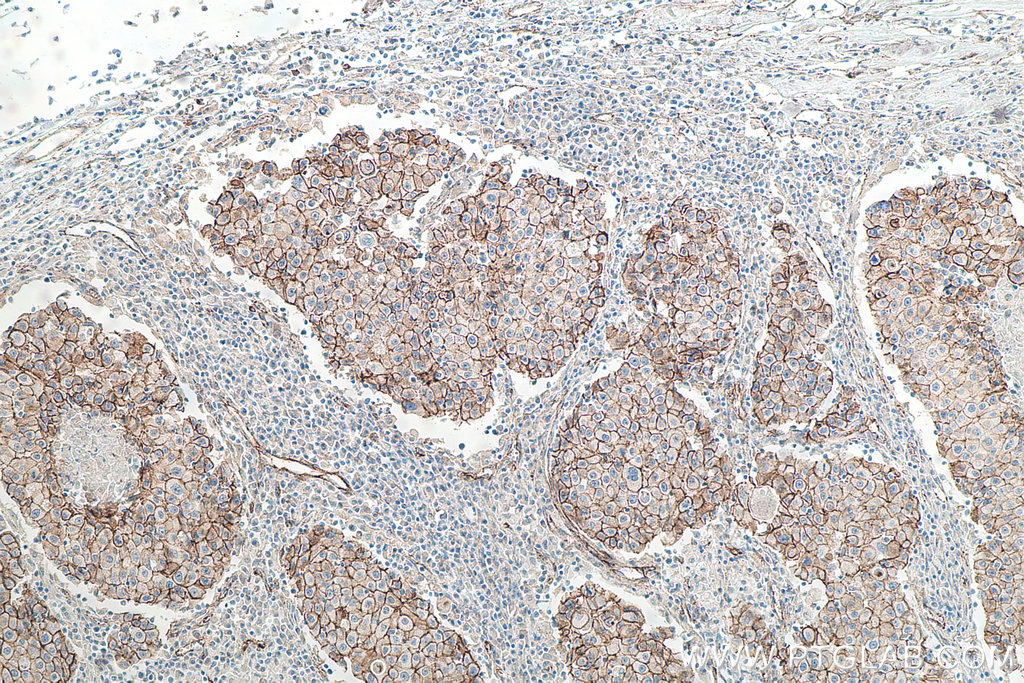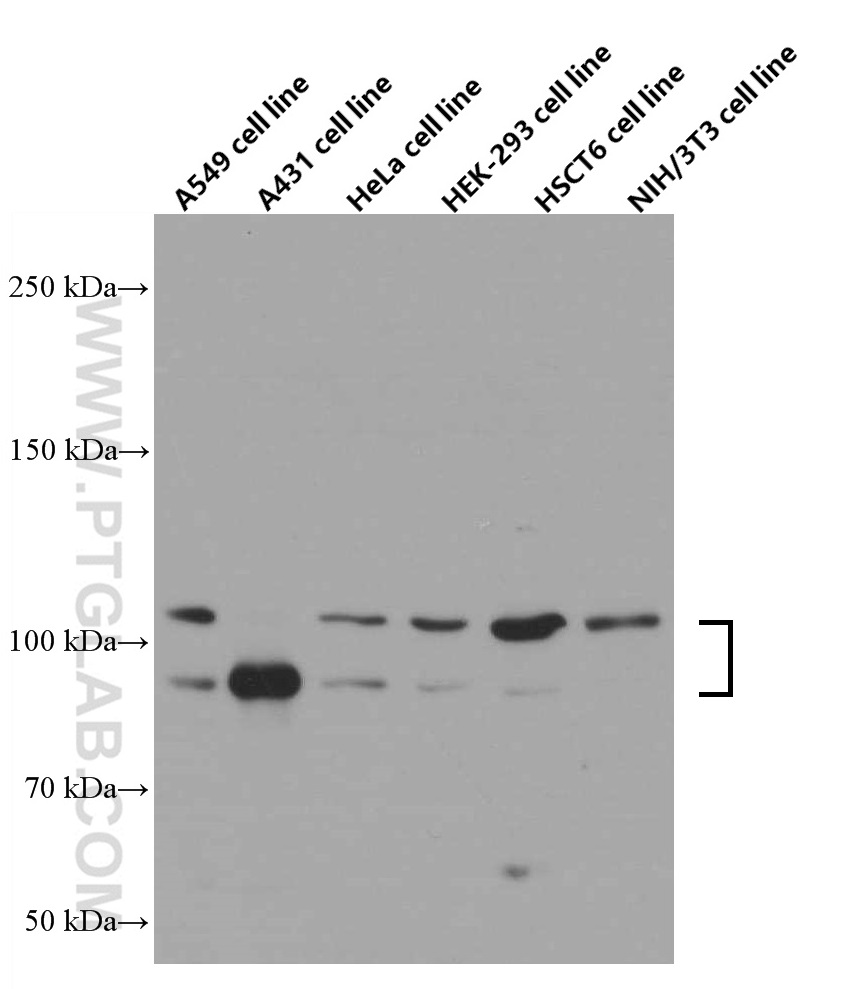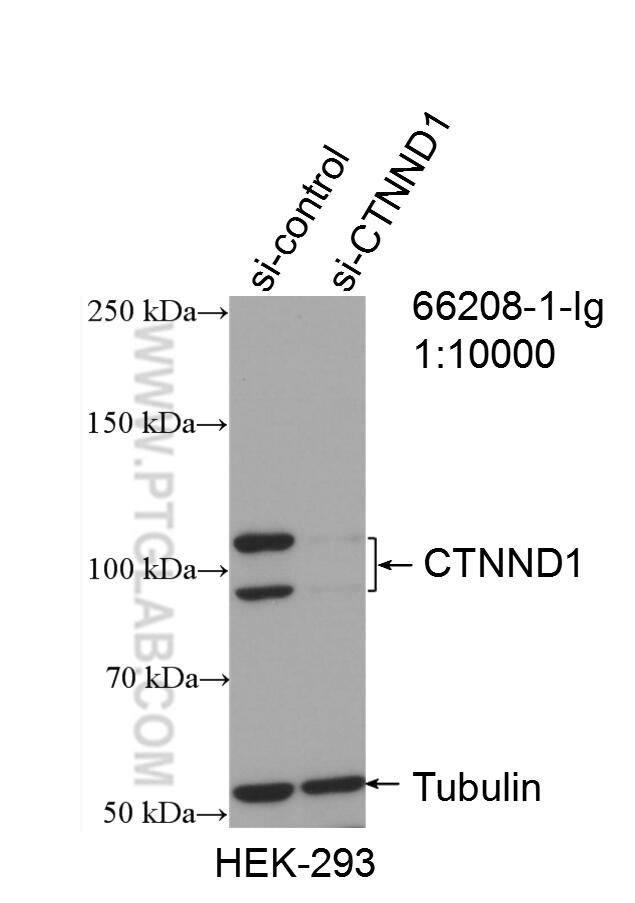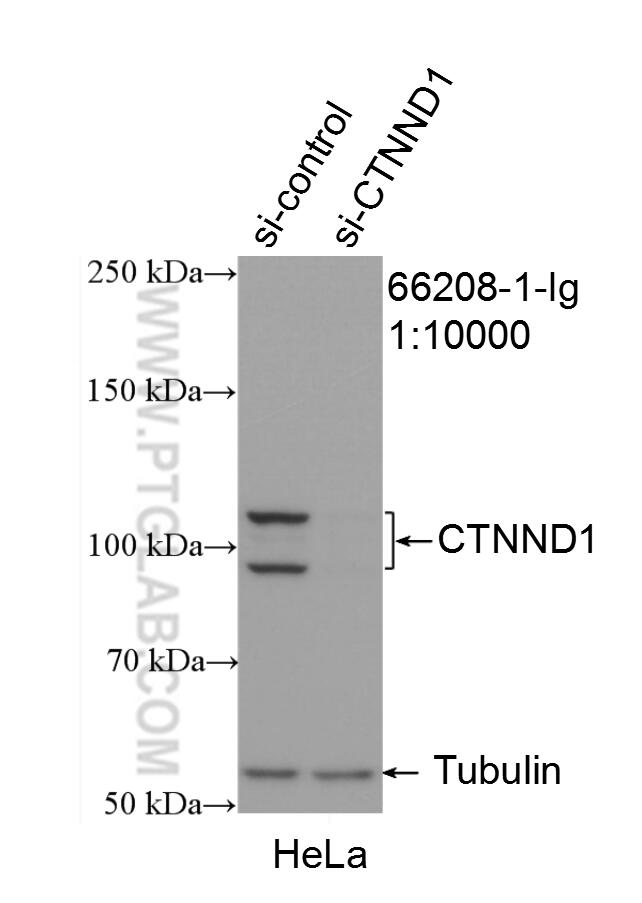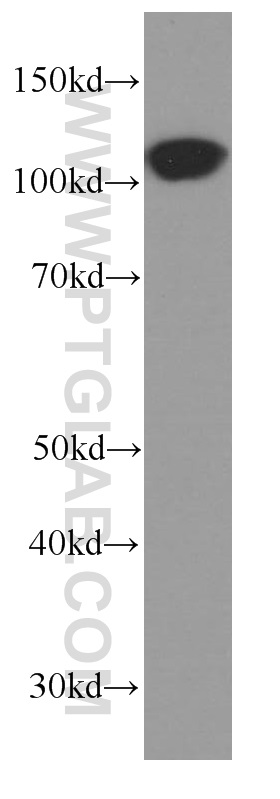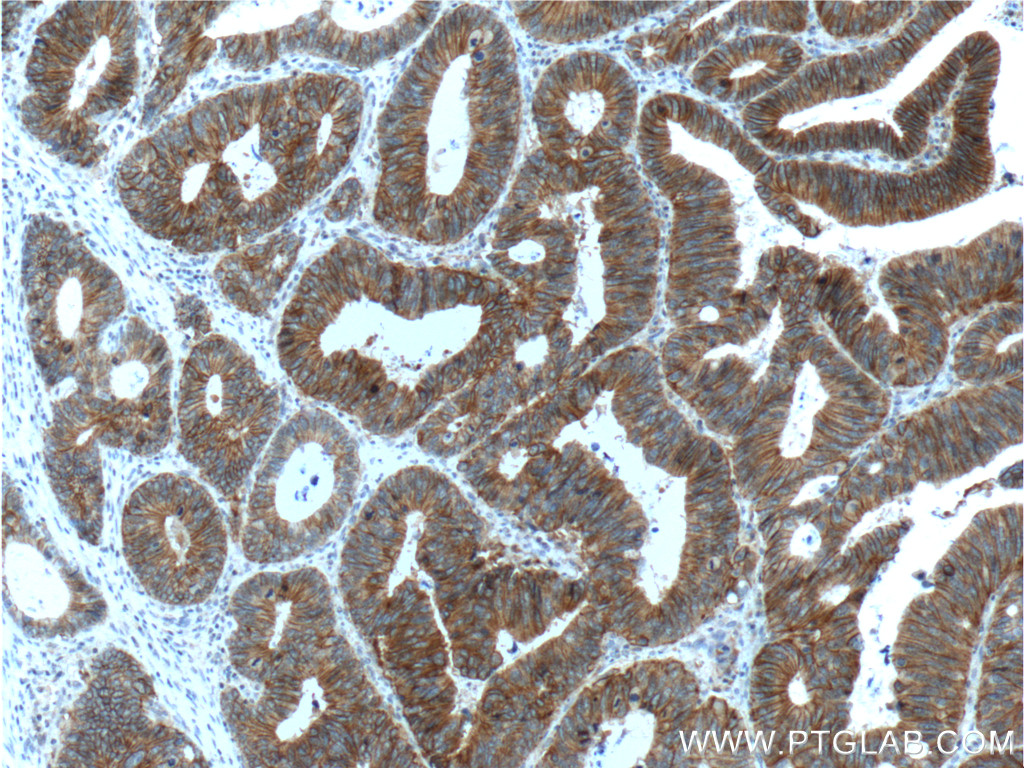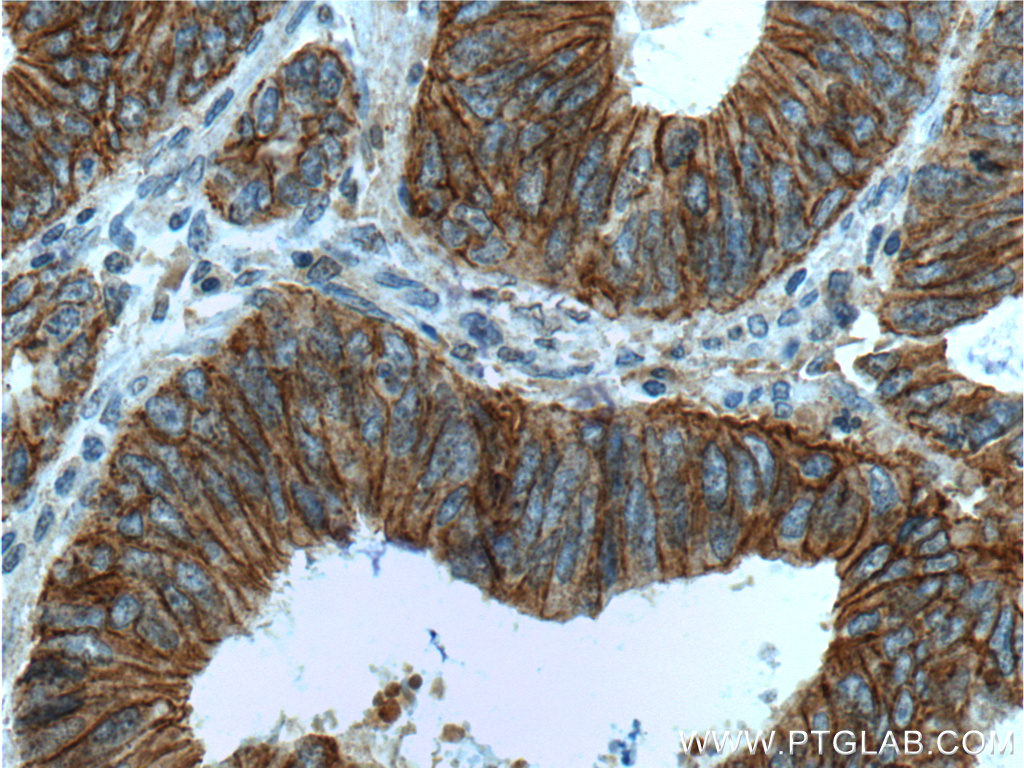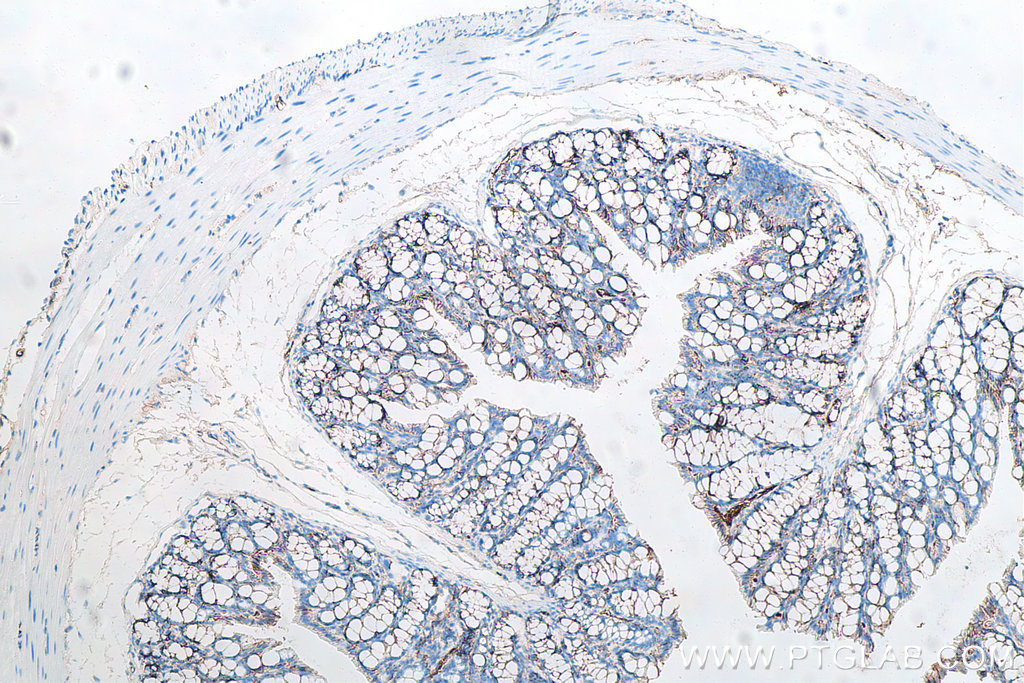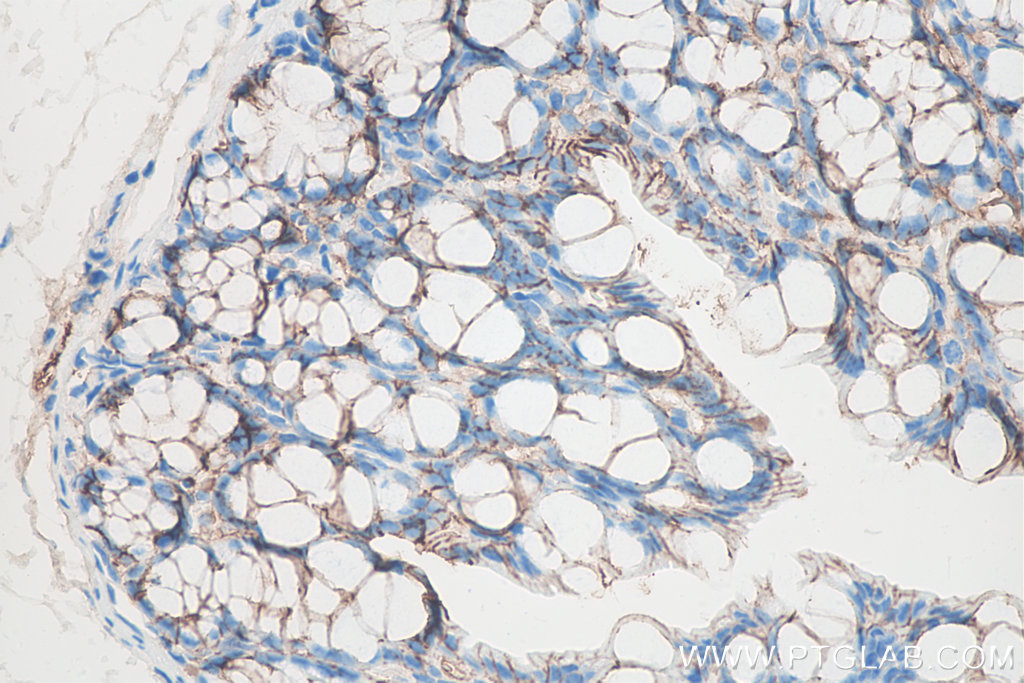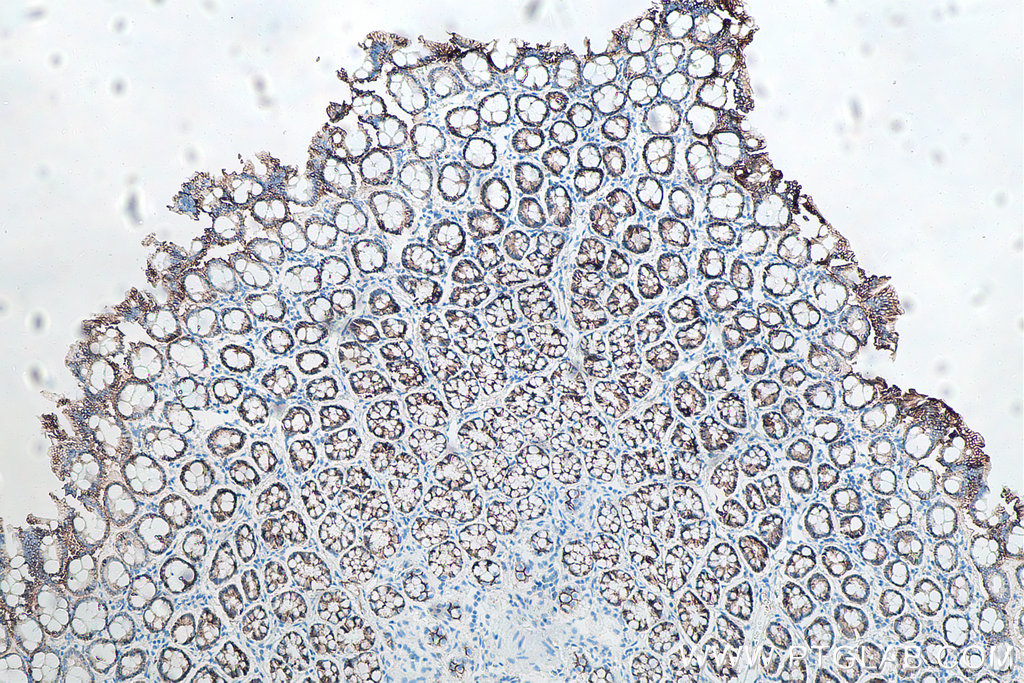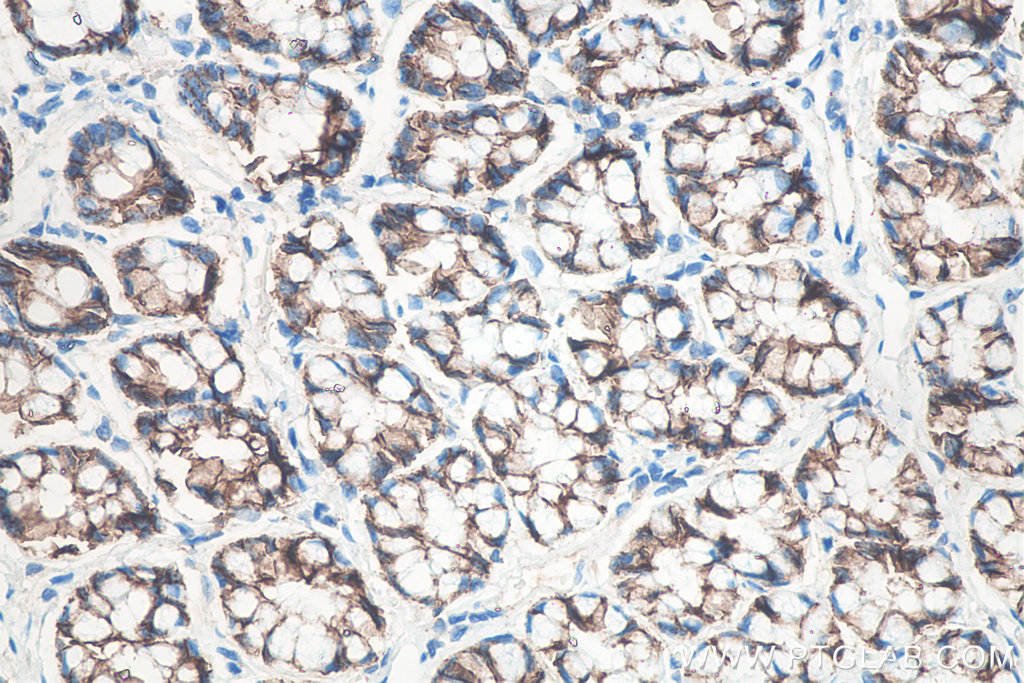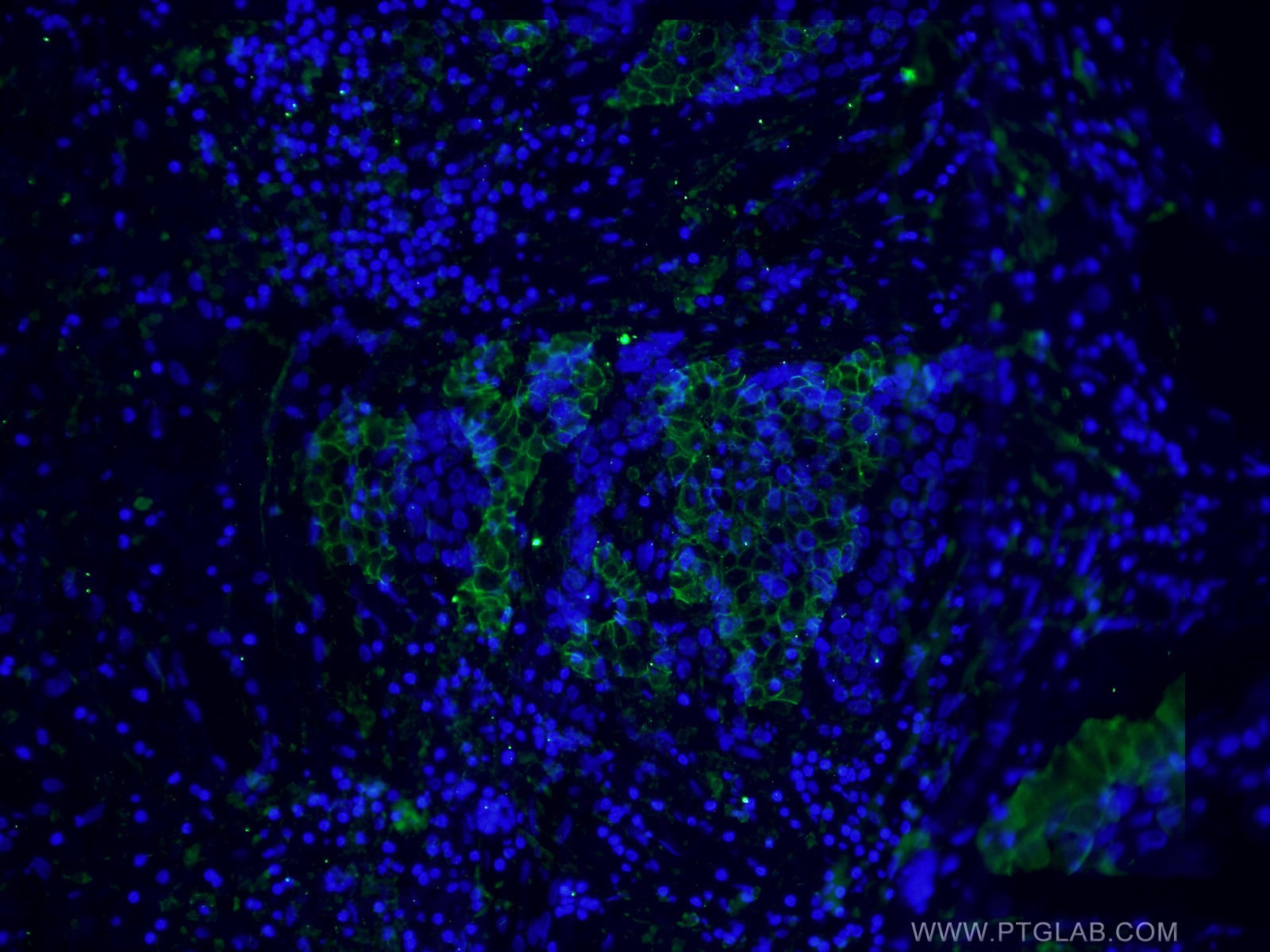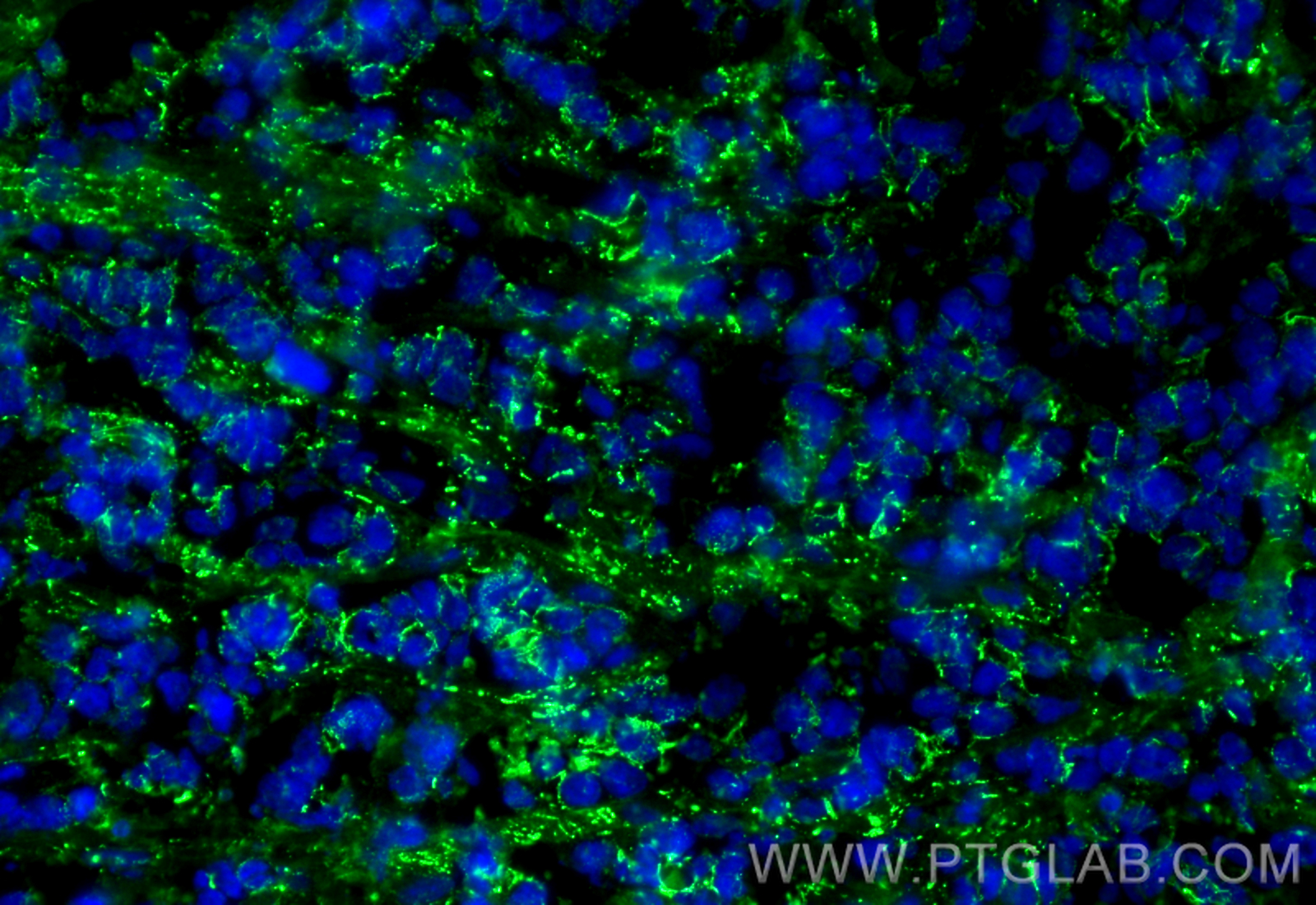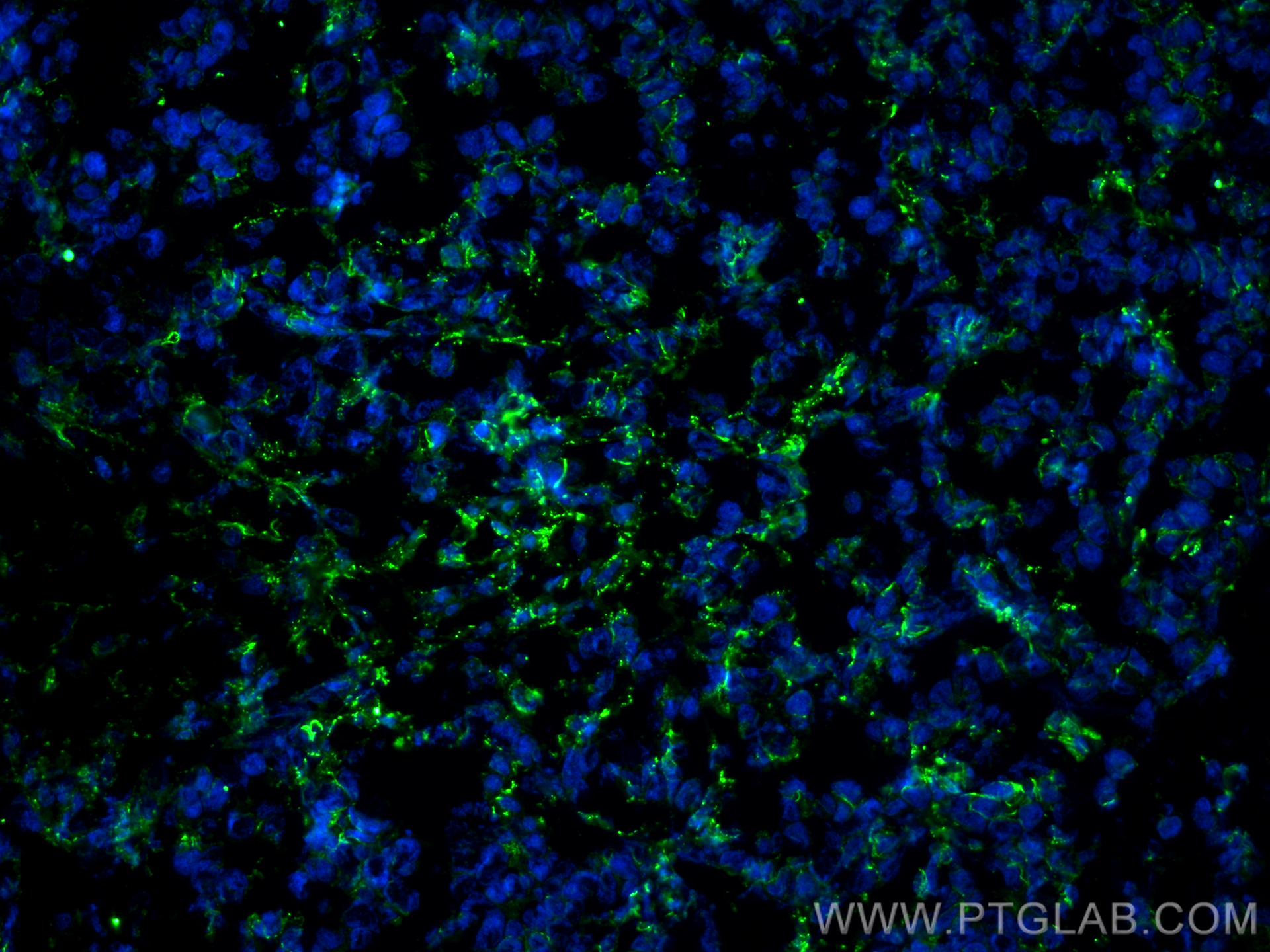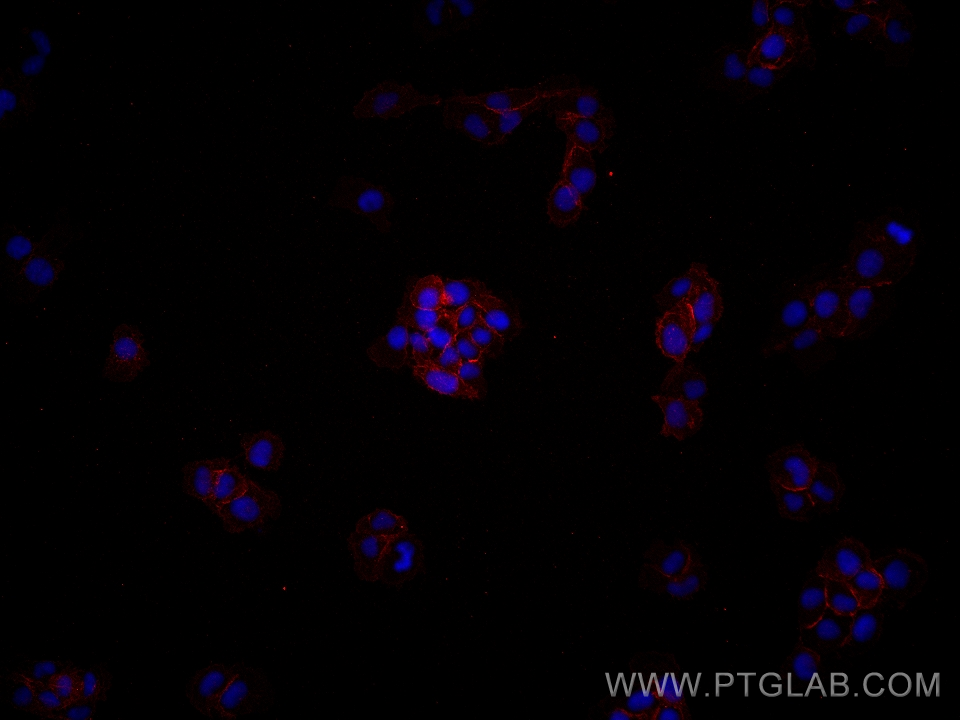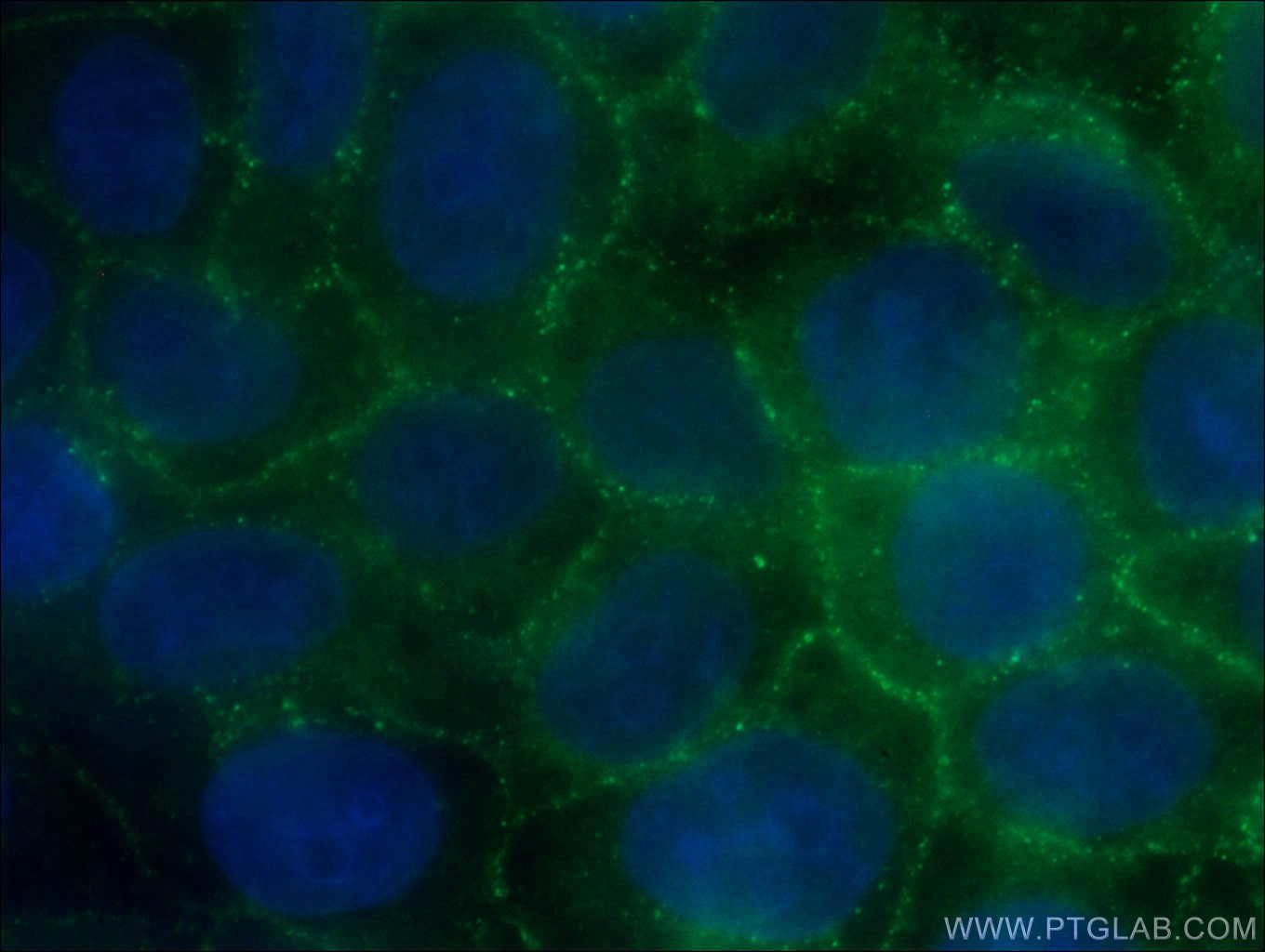验证数据展示
产品信息
66208-1-PBS targets p120 Catenin in WB, IHC, IF/ICC, Indirect ELISA applications and shows reactivity with human, mouse, rat samples.
| 经测试应用 | WB, IHC, IF/ICC, Indirect ELISA Application Description |
| 经测试反应性 | human, mouse, rat |
| 免疫原 |
CatNo: Ag2824 Product name: Recombinant human CTNND1 protein Source: e coli.-derived, PGEX-4T Tag: GST Domain: 546-830 aa of BC010501 Sequence: GYELLFQPEVVRIYISLLKESKTPAILEASAGAIQNLCAGRWTYGRYIRSALRQEKALSAIADLLTNEHERVVKAASGALRNLAVDARNKELIGKHAIPNLVKNLPGGQQNSSWNFSEDTVISILNTINEVIAENLEAAKKLRETQGIEKLVLINKSGNRSEKEVRAAALVLQTIWGYKELRKPLEKEGWKKSDFQVNLNNASRSQSSHSYDDSTLPLIDRNQKSDKKPDREEIQMSNMGSNTKSLDNNYSTPNERGDHNKTLDRSGDLGDMEPLKGTTPLMQKI 种属同源性预测 |
| 宿主/亚型 | Mouse / IgG2b |
| 抗体类别 | Monoclonal |
| 产品类型 | Antibody |
| 全称 | catenin (cadherin-associated protein), delta 1 |
| 别名 | CTNND1, Cadherin-associated Src substrate, CAS, Catenin delta 1, Catenin delta-1 |
| 计算分子量 | 948 aa, 105 kDa |
| 观测分子量 | 90-120 kDa |
| GenBank蛋白编号 | BC010501 |
| 基因名称 | p120 Catenin |
| Gene ID (NCBI) | 1500 |
| RRID | AB_2881599 |
| 偶联类型 | Unconjugated |
| 形式 | Liquid |
| 纯化方式 | Protein A purification |
| UNIPROT ID | O60716 |
| 储存缓冲液 | PBS only, pH 7.3. |
| 储存条件 | Store at -80°C. The product is shipped with ice packs. Upon receipt, store it immediately at -80°C |
背景介绍
Catenins were discovered as proteins that are linked to the cytoplasmic domain of transmembrane cadherins (PMID: 9653641). p120 catenin, also called p120 ctn or catenin delta-1, regulates cell-cell adhesion through its interaction with the cytoplasmic tail of classical and type II cadherins. p120 catenin is a tyrosine kinase substrate implicated in cell transformation by SRC, as well as in ligand-induced receptor signaling through the EGF receptor, the PDGF receptor, and the CSF1 receptor. Different expression patterns of p120 catenin in lobular and ductal carcinomas of breast have been reported: membrane stain for ductal carcinoma and cytoplasmic stain for lobular carcinoma (PMID: 24966968). Different isoforms of p120 catenin are variably expressed in different tissues as a result of alternative splicing and the use of multiple translation initiation codons (PMID: 19150613).

